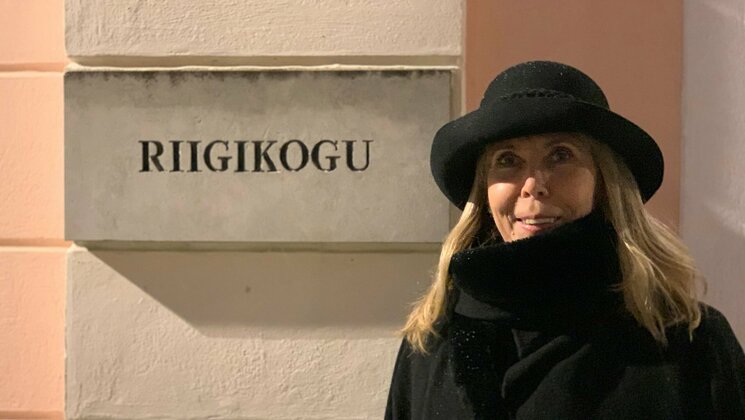-
Humanitaarteaduste ja kunstide valdkondHumanitaarteaduste ja kunstide valdkonna dekanaatJakobi 2, r 116-121 51005 Tartu linn, Tartu linn, Tartumaa EST0Ajaloo ja arheoloogia instituutJakobi 2 51005 Tartu linn, Tartu linn, Tartumaa EST0Eesti ja üldkeeleteaduse instituutJakobi 2, IV korrus 51005 Tartu linn, Tartu linn, Tartumaa EST0Filosoofia ja semiootika instituutJakobi 2, III korrus, ruumid 302-337 51005 Tartu linn, Tartu linn, Tartumaa EST0Kultuuriteaduste instituutÜlikooli 16 51003 Tartu linn, Tartu linn, Tartumaa EST0Maailma keelte ja kultuuride instituutLossi 3 51003 Tartu linn, Tartu linn, Tartumaa EST0UsuteaduskondÜlikooli 18 50090 Tartu linn, Tartu linn, Tartumaa EST0Viljandi kultuuriakadeemiaPosti 1 71004 Viljandi linn, Viljandimaa EST0Humanitaarteaduste ja kunstide valdkonna emeriitprofessorid0Humanitaarteaduste ja kunstide valdkonna emeriitdotsendid0Sotsiaalteaduste valdkondSotsiaalteaduste valdkonna dekanaatLossi 36 51003 Tartu linn, Tartu linn, Tartumaa EST0Haridusteaduste instituutJakobi 5 51005 Tartu linn, Tartu linn, Tartumaa EST0Johan Skytte poliitikauuringute instituutLossi 36, ruum 301 51003 Tartu linn, Tartu linn, Tartumaa EST0MajandusteaduskondNarva mnt 18 51009 Tartu linn, Tartu linn, Tartumaa EST0Psühholoogia instituutNäituse 2 50409 Tartu linn, Tartu linn, Tartumaa EST0ÕigusteaduskondNäituse 20 - 324 50409 Tartu linn, Tartu linn, Tartumaa EST0Ühiskonnateaduste instituutLossi 36 51003 Tartu linn, Tartu linn, Tartumaa EST0Narva kolledžRaekoja plats 2 20307 Narva linn, Ida-Virumaa EST0Pärnu kolledžRingi 35 80012 Pärnu linn, Pärnu linn, Pärnumaa EST0Sotsiaalteaduste valdkonna emeriitprofessorid0Sotsiaalteaduste valdkonna emeriitdotsendid0Meditsiiniteaduste valdkondMeditsiiniteaduste valdkonna dekanaatRavila 19 50411 Tartu linn, Tartu linn, Tartumaa ESTBio- ja siirdemeditsiini instituutBiomeedikum, Ravila 19 50411 Tartu linn, Tartu linn, Tartumaa ESTFarmaatsia instituutNooruse 1 50411 Tartu linn, Tartu linn, Tartumaa ESTHambaarstiteaduse instituutL. Puusepa 1a 50406 Tartu linn, Tartu linn, Tartumaa ESTKliinilise meditsiini instituutL. Puusepa 8 50406 Tartu linn, Tartu linn, Tartumaa ESTPeremeditsiini ja rahvatervishoiu instituutRavila 19 50411 Tartu linn, Tartu linn, Tartumaa ESTSporditeaduste ja füsioteraapia instituutUjula 4 51008 Tartu linn, Tartu linn, Tartumaa ESTMeditsiiniteaduste valdkonna emeriitprofessorid0Meditsiiniteaduste valdkonna emeriitdotsendid0Loodus- ja täppisteaduste valdkondLoodus- ja täppisteaduste valdkonna dekanaatVanemuise 46 - 208 51003 Tartu linn, Tartu linn, Tartumaa ESTArvutiteaduse instituutNarva mnt 18 51009 Tartu linn, Tartu linn, Tartumaa ESTGenoomika instituutRiia 23b/2 51010 Tartu linn, Tartu linn, Tartumaa ESTEesti mereinstituutMäealuse 14 12618 Tallinn, Harjumaa EST0Füüsika instituutKeemia instituutRavila 14a 50411 Tartu linn, Tartu linn, Tartumaa EST0Matemaatika ja statistika instituutNarva mnt 18 51009 Tartu linn, Tartu linn, Tartumaa EST0Molekulaar- ja rakubioloogia instituutRiia 23, 23b - 134 51010 Tartu linn, Tartu linn, Tartumaa ESTTartu observatooriumObservatooriumi 1 61602 Tõravere alevik, Nõo vald, Tartumaa EST0TehnoloogiainstituutNooruse 1 50411 Tartu linn, Tartu linn, Tartumaa ESTÖkoloogia ja maateaduste instituutJ. Liivi tn 2 50409 Tartu linn, Tartu linn, Tartumaa ESTLoodus- ja täppisteaduste valdkonna emeriitprofessorid0Loodus- ja täppisteaduste valdkonna emeriitdotsendid0Bioinseneeria instituutNooruse 1 50411 Tartu linn, Tartu linn, Tartumaa ESTAkadeemilise sekretäri tegevusvaldkondPersonaliosakondUppsala 6, Lossi 36 51003 Tartu linn, Tartu linn, Tartumaa EST0Finantsjuhi tegevusvaldkondRahandusosakondJakobi 4 51005 Tartu linn, Tartu linn, Tartumaa EST0Kantsleri tegevusvaldkondInfotehnoloogia osakondUppsala 10 51003 Tartu linn, Tartu linn, Tartumaa EST0KantseleiÜlikooli 17 (III korrus) 51005 Tartu linn, Tartu linn, Tartumaa EST0Kinnisvaraosakond0Turundus- ja kommunikatsiooniosakondÜlikooli 18, ruumid 102, 104, 209, 210 50090 Tartu linn, Tartu linn, Tartumaa EST0Arendusprorektori tegevusvaldkondEttevõtlus- ja innovatsioonikeskusNarva mnt 18 51009 Tartu linn, Tartu linn, Tartumaa EST0Loodusmuuseum ja botaanikaaedVanemuise 46 51003 Tartu linn, Tartu linn, Tartumaa EST0Rahvusvahelise koostöö ja protokolli osakond0MuuseumLossi 25 51003 Tartu linn, Tartu linn, Tartumaa EST0Rektori tegevusvaldkondRektoraadi bürooÜlikooli 18 50090 Tartu linn, Tartu linn, Tartumaa ESTSiseauditi bürooÕppeprorektori tegevusvaldkondÕppeosakond0TeaduskoolUppsala 10 51003 Tartu linn, Tartu linn, Tartumaa EST0Üliõpilaskonna bürooÜlikooli 18b 51005 Tartu linn, Tartu linn, Tartumaa EST0Õppimis- ja õpetamiskeskusLossi 36-401 51003 Tartu linn, Tartu linn, Tartumaa ESTTeadusprorektori tegevusvaldkondTartu Ülikooli raamatukoguW. Struve 1 50091 Tartu linn, Tartu linn, Tartumaa EST0GrandikeskusRaekoja plats 9, III korrus 51004 Tartu linn, Tartu linn, Tartumaa EST
Seminar "Praktiline realism ajaloolises kontekstis"
Neljapäeval, 12. detsembril kell 15:15 Jakobi 2-114 toimub seminar "Praktiline realism ajaloolises kontekstis", kus Professor Kenneth R. Westphal East Anglia Ülikoolist Suurbritanniast peab ettekande "'Of the Transcendental Power of Judgement as such' (KdrV B171–5): Hegel’s Pragmatic Critique & Transformation of Kant’s System of Principles"
Kommenteerib teadusfilosoofia professor Rein Vihalemm. Järgneb arutelu.
Seminari korraldab teadusfilosoofia õppetool Keeleteaduse, filosoofia ja semiootika doktorikooli toetusel.
Ettekande teesid:
Peirce’s study of Kant, and later of Hegel, and Dewey’s retention of much of Hegel’s social philosophy are recognised idealist sources of pragmatism. Here I argue that the transition from idealism to pragmatic realism was already achieved by Hegel. Hegel’s ‘Objective Logic’ corresponds in part to Kant’s ‘Transcendental Logic’ (WdL, GW 21:47.1–3). Hegel faults Kant for relegating concepts of reflection to an Appendix to his Transcendental Logic (WdL, GW 12:19.34–38), and for treating reason as ‘only dialectical’ and as ‘merely regulative’ (WdL, GW 12:23.12, .16–17). I present three important yet neglected features of Kant’s Critique of Pure Reason which are key enthymemes undergirding Hegel’s critical reconstruction of Kant’s Critical philosophy (§2). I then summarise some features of the philosophical context within which Hegel begins to re-assess and reconstruct Kant’s Transcendental Logic (§3), and review several key steps in this direction Hegel undertook in the 1807 Phenomenology (§4). I can then examine some significant features of Hegel’s pragmatic reconstruction of Kant’s Critical philosophy in the Science of Logic (§§5, 6). Hegel’s reanalysis of Kant’s Critical philosophy is the first and still one of the most sophisticated and adequate pragmatic – specifically pragmatic realist – accounts of the a priori.
Loe veel sarnaseid uudiseid




